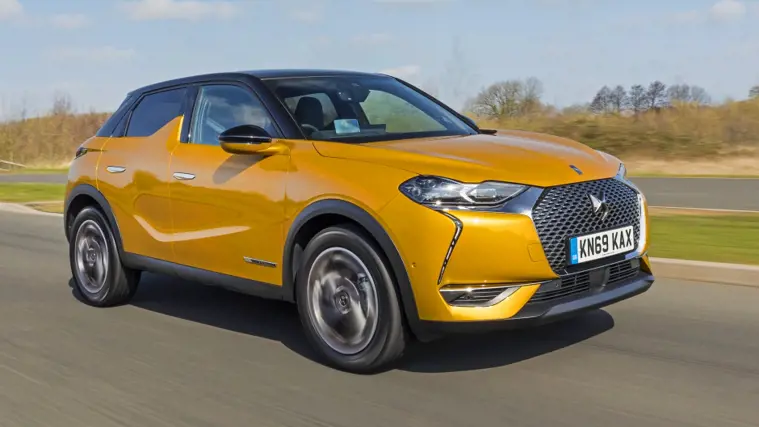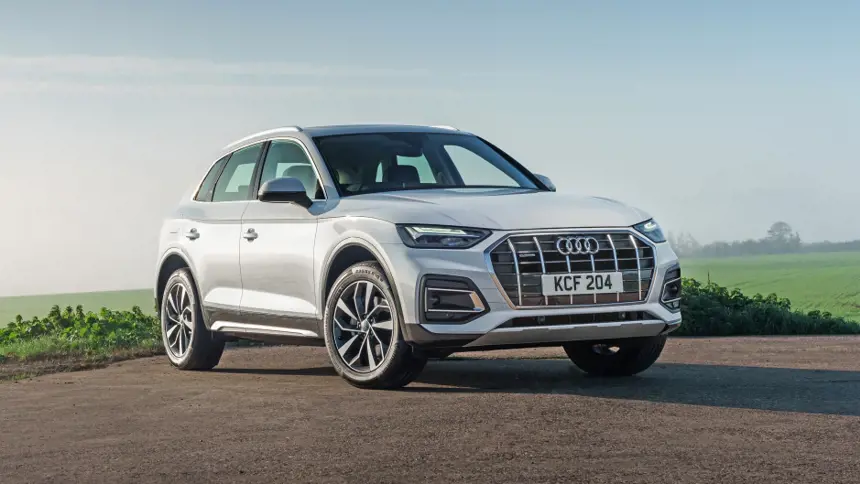Refused car finance? How to secure a new car finance deal
Applied for finance before and were rejected? Not all lenders are the same, so read our tips to put yourself in a better position this time

You have your hopes set on a new car, start looking around to see which car you might want and then - bang - your plans are derailed as the bank tells you it can't lend you the money to purchase it.
You’re surprised, not least because you think you’re pretty good with money. But lenders are risk averse and know more about your financial performance than you probably give them credit for, if you’ll pardon the pun.
The fact is, every time you use credit, be it paying for something with a credit card, signing up for a new phone contract or any one of the hundreds of different financial transactions we do almost without thinking twice about, you leave a trail that’s picked up by organisations called credit reference agencies.
Based on this credit history, the agencies award you a so-called credit rating. Lenders refer to this assessment when calculating their own rating upon which they base their lending decision. The lower your score, the less likely they are to lend you the money you want. And even if they do, it may be at a higher interest rate.
Many things, ranging from missing just one finance payment to having too many loans, can negatively affect your credit rating. As a result, having a long history of borrowing responsibly and paying back on time can really boost your score, while borrowing sporadically, missing numerous payments and making lots of applications for credit could do the opposite.
So what can you do if you’ve been refused a loan? With the help of Lisa Hardstaff, credit information expert at Equifax, one of the credit reference agencies, we guide you through your options.
Why was I declined car finance?
There’s no harm in asking the lender why they turned you down. Perhaps you once missed a payment or exceeded your existing credit limit in the past.
Perhaps the lender cannot confirm your address, you made a mistake in your application, you have what is called a ‘thin history’ because you haven’t borrowed much in the past - meaning it's hard for the lender to gauge how likely you are to pay them back - you’re financially associated with someone who has a bad credit history (a current or former partner, for example) or you simply aren't the lender’s target market.
Fear not, if you have a limited history of borrowing. Read our guide about to what to do if you have no credit history - or even a thin history. Meanwhile, if the lender can't confirm your details or there are mistakes in your application, make sure you correct these as soon as possible to boost your chances of being approved. And if you are financially tied to someone with a poor credit score, consider separating your finances, as this should improve your prospects of getting credit.
If you’re not happy with the lender's responses, check your credit history with the agencies (it’s free and the lender will tell you which agency it used) to see if there are errors in it that need clearing up or information that requires clarifying.
Declined car finance: how to increase your chances

Review your financial commitments and check if you have existing credit agreements you can settle early. Paying these off should leave a positive marker on your credit history and lenders are likely to see you as more creditworthy if you have fewer monthly commitments. Additionally, it's worth closing any dormant cards and accounts because lenders take them into account when calculating the total amount of unutilised credit available to you.
Sever any financial connections you have with people who have a poor credit history - by cancelling joint accounts, for instance - because their low score drags yours down, too. Taking these steps will improve your credit score; not overnight but within weeks. Find out if your credit score is good enough for car finance here.
Refused car finance again? Take a deep breath...
If you've been turned down by one lender, don't immediately try another one. Each credit application you make goes into your credit history where it can be seen by other lenders.
You may think applying for a loan is perfectly harmless, but to lenders making multiple applications in a short space of time makes it seem as if you're stretching your credit limit to breaking point and in dire need of cash. As a result, they’ll reduce your credit score still further. A couple of weeks between applications should be fine.
It's wise to gauge your chances for a loan by checking those that do a 'soft credit search', as this allows you to see which options might be open to you - and narrow down the best value options - without making it seem like you're desperate for cash by making lots of formal applications.
Consider choosing a cheaper car and borrowing less

Reviewing your finances and your repayment obligations may persuade you that lowering your sights and choosing a cheaper car is the right way forward. Since you’ll be borrowing less money, when you reapply you may find you’re now within the lender’s credit limit.
Since there are thousands of great value used cars to choose from for less than £10,000, under £8,000 or even less than £5,000, don't let lowering your budget get you down. Spending a little more time doing your homework to track down an affordable car that suits your needs could not only save you thousands but could also mean the difference between being approved for finance or receiving a rejection.
Hire Purchase or PCP can help
So far, we’ve been talking about so-called unsecured loans where the loan isn't legally related to a specific item you're borrowing on, such as a house. This is why your credit score or rating has to be high, because the lender is more exposed if you fail to make payments on the loan.
A loan secured against an item such as a car is more appealing to lenders because if you fail to make the payments, there is something tangible and legally related to the loan that they can reclaim. It’s for this reason that secured loans, such as Hire Purchase (HP) and Personal Contract Purchase (PCP) finance, can be easier to obtain than an unsecured bank loan.
You arrange these when purchasing the car, too, which saves you time and hassle compared with having to find a decent loan and then tracking down a car with a good cash price to purchase. Another benefit of HP and PCP options is that low - or even zero - deposit options may be available, though be aware that the lower the deposit, the more you'll have to pay in interest.
Approach a specialist lender

If you’re dead set on having a particular car come what may, but you can't get a loan - either secured or non-secured - from traditional lenders, try a specialist lender with experience of borrowers with below-par credit histories. We work with lenders that consider those who don't have a perfect credit score, so should be able to help most drivers to find finance.
However, remember that if your credit score is poor, you can expect to pay a higher interest rate. And be warned: those that advertise 0% APR finance on used cars may not charge interest, but they will have increased the price of the car to compensate, so either way you’ll be paying a premium for finance. As always, it's a good idea to get like-for-like finance quotes to work out which deals offer you the best value for money.
*Representative PCP finance - Ford Fiesta:
48 monthly payments of £192
Deposit: £0
Mileage limit: 8,000 per year
Optional final payment to buy car: £2,923
Total amount payable to buy car: £11,926
Total cost of credit: £2,426
Amount borrowed: £9,500
APR: 9.9%
BuyaCar is a credit broker, not a lender. Our rates start from 6.9% APR. The rate you are offered will depend on your individual circumstances.
